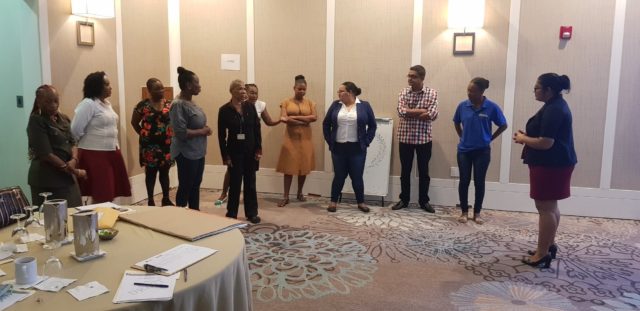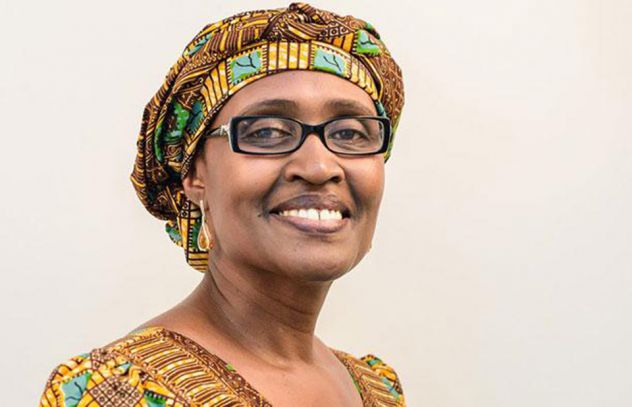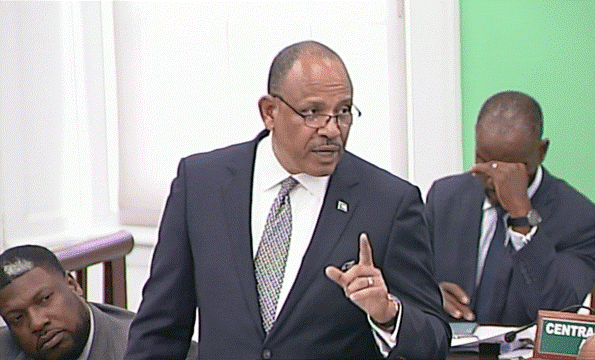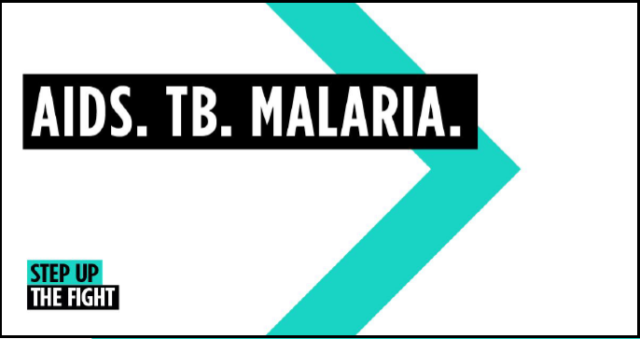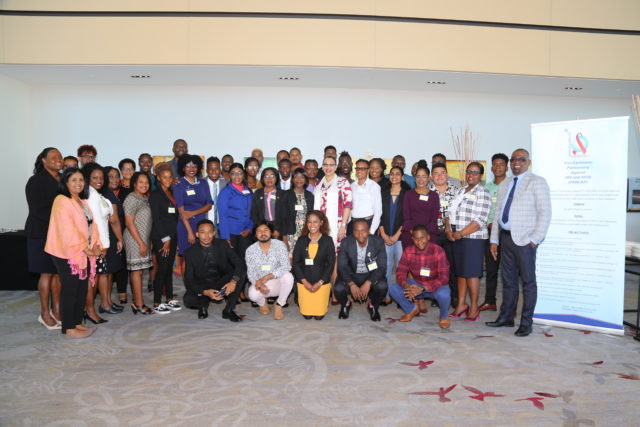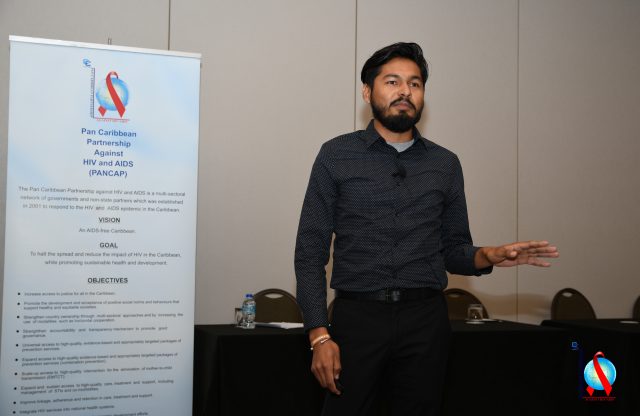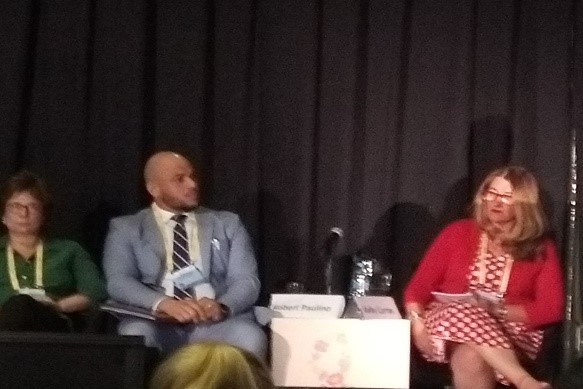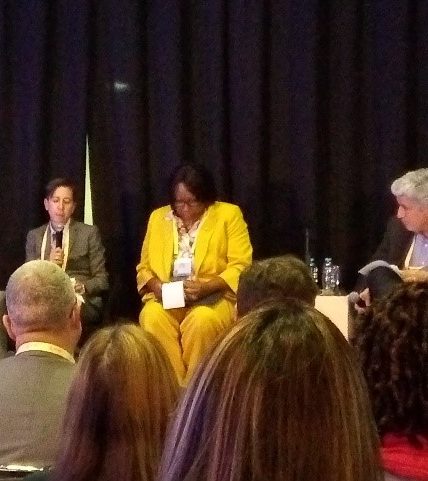Wednesday 31 July, 2019 (PANCAP Coordinating Unit, CARICOM Secretariat): The Pan-Caribbean Partnership against HIV and AIDS (PANCAP), the mechanism that provides a structured and unified approach to the Caribbean’s response to the HIV epidemic, convened the Third Regional Meeting of Youth Leaders on Sexual and Reproductive Health and HIV and AIDS on 30 July 2019 in Port-of-Spain, Republic of Trinidad and Tobago.
The forum will facilitate the drafting of a roadmap with strategies for sustaining youth advocacy for the promotion of gender equality, HIV prevention, actions to end gender-based violence and access to quality sexual reproductive health (SRH) services to meet the needs of adolescents and youth regardless of disability, age, citizenship, gender identity and sexual orientation.
In opening remarks, Director of PANCAP, Dereck Springer reflected on the creation and relevance of the Caribbean Regional Youth Advocacy Framework (CRYAF) on Sexual and Reproductive Health and Rights. “After developing the CRYAF with input from youth, we recognized that it was important to build youth leaders’ advocacy skills so that they would be better prepared to advocate at the regional and national levels”, stated the Director. “This was done during the second meeting of youth leaders, and the approach was successful as we now have a dynamic group of young people who are passionate and innovative in their approach to advocacy”.
Mr Springer stated that PANCAP has been supporting youth leaders to advocate at the regional level, which included funding for youths to engage in regional forums with Ministers of Health and Education. PANCAP also supported youth leaders’ participation in the Joint Regional Dialogue with Faith Leaders, Parliamentarians, Civil Society Leaders and National AIDS Programme Managers. A presentation by youth leaders advocating for access to sexual and reproductive health services was also positively received at the Meeting of the Council for Human and Social Development (COHSOD).
The PANCAP Director praised the development of action plans by the youth body. “I was impressed that youth leaders recognized the need to adapt their advocacy approach from the regional to the national platform,” stated Mr Springer, “I was also impressed by the reports of all the advocacy work implemented at the national level which called attention to issues concerning adolescents’ health and rights, gender equality, HIV prevention, actions to end gender-based violence and access to quality sexual reproductive health (SRH) services to meet the needs of adolescents and youth”.
He also encouraged youths to continue utilizing digital platforms, including social media, to propagate their advocacy messages. “I am proud when I see our youths utilizing innovation to provoke responses on issues which they are passionate about,” stated the PANCAP Director, “continue to use the technology available to remain visible”. He outlined the plethora of new knowledge which will be gained by youths during the meeting and urged participants to utilize the new skills to collaborate and heighten sexual and reproductive health advocacy across the region.
In her remarks, Ms Renatta Langlais, Member, PANCAP Steering Committee on Youth Advocacy (PSCYA) praised participants for their consistent commitment to attending PANCAP youth forums and challenged them to utilize the new skills gained within the PSCYA and CARICOM Youth Ambassadors Corps. “We are here to share and learn from each other, we are here to meaningfully contribute to our healthy development as Caribbean youth,” stated Ms Langlais.
She highlighted that the task of achieving the three main priority areas set by the Caribbean Regional Youth Advocacy Framework in 2017 has been challenging. These included aligning the age of access to sexual and reproductive health services to the age of sexual consent, introducing Comprehensive Sexuality Education (CSE) to all Caribbean schools and advocating for Gender Neutral Laws and policies to be passed and implemented, especially those protecting the rights of victims of gender-based violence regardless of gender, orientation, race or status.
“Change does not come easily in our Caribbean Society,” stated Ms Langlais “It is difficult to show someone a new path when they are already set in their ways. We all want a healthy society, but many allow prejudice, stereotypes and stigma to block the road to progress”. However, she praised the progress made by the youth body in formulating goals, indicators, and challenging barriers to SRH services by adolescents and youth. “We must face obstacles of tradition, apathy, ignorance and lack of political will, head-on. The road we are travelling is very Caribbean, full of potholes of politics and bigotry; sometimes we fall in them, other times we manage to avoid them”.
She further praised the PANCAP Director and the Partnership for consistent commitment to building the capacity of youth leaders in advocacy and urged participants to utilize collaboration as the key to fostering change and reaching policymakers with advocacy messages.
Ms Terez Lord, CARICOM Youth Ambassador (CYA), Republic of Trinidad and Tobago in her remarks reminded participants of the significance of the CARICOM Youth Ambassador Corps (CYAC). “We, in this room, represent the hopes and the dreams that were born in 1993 when the CYAC was formed.
We hold the hopes of our Heads of Government who created this mechanism that was to be of the young people, for the young people and by the young people”. She further highlighted that the CYAC was intended to be the catalyst to integrate and infuse the perspectives and solutions proposed by youth across the region into national, regional and international policy and practices. She also expressed gratitude to PANCAP for supporting youths to fulfil the mandate of the CYAC by building their capacity to advocate at all levels. She stated “as a unit, we have the strength and we have prowess – but only if we want to. In the international community, our presence is strong, and our voices are distinct”.
The CYA urged youths to utilize their collective skills to advocate for change. She stated “If collaboration is currency, then perhaps we as CARICOM can indeed have one common currency. We must be keen on ensuring CARICOM representation so that Heads of Government can recognize our presence, respect our intellect, accept our contributions and implement our recommendations”.
She urged youths to utilize the forum to create innovative, inclusive and impactful recommendations. “CARICOM Youth Ambassadors are a dynamic group of young people who are always prepared to disrupt old ways, mount a challenge to the status quo and contribute meaningfully and constructively to the sustainable development of our region,” stated Ms Lord.
Keynote speaker, Shaquille Knowles, Chairperson, Caribbean Regional Youth Council (CRYC) praised PANCAP for providing a space for young people to discuss issues affecting youth including universal health and SRH. He expressed his anticipation for the specific outcomes from the meeting which include the development of practical solutions capable of increasing youth’s access to quality health services, and a commitment to stand up against issues that have prevented adolescents’ access to quality universal health and SRH services.
He expressed his passion for advocating for SRH for adolescents and outlined the challenges affecting adolescents’ access to quality health services which included the inability to afford health services and the stigma associated with receiving health services to treat specific illnesses. “Unfortunately, as the world continues to revolve without adequately addressing these key challenges within our critical demographic – more adolescents continue to grapple with the challenges with access to services that ‘healthy’ individuals take for granted,” stated the CRYC Chair.
He recounted an experience in which a family member died as a result of inadequate access to preventative health care services. “This loss of life could have been prevented with adequate resources to properly educate persons on the preventative measures to avoid being infected with HIV and measures to reduce the stigma of HIV within our communities and homes,” stated Mr Knowles.
“I have witnessed continued efforts to reduce the prevalence rate of the HIV and other STIs in the Caribbean thanks to efforts from PANCAP, Ministries of Health and advocates,” stated the CRYC Chair, “However, we must remain steadfast in transforming the lives of the world’s most critical population by continuing the work to reduce the detrimental effects of a lack of access to universal health services”.
He concluded by challenging participants to use innovation to advocate for adolescents’ access to SRH and to use their platforms to keep health for young people at the top of every policymaker’s agenda.
-ENDS –
What is PANCAP?
PANCAP is a Caribbean regional partnership of governments, regional civil society organisations, regional institutions and organisations, bilateral and multilateral agencies and contributing donor partners which was established on 14 February 2001. PANCAP provides a structured and unified approach to the Caribbean’s response to the HIV epidemic, coordinates the response through the Caribbean Regional Strategic Framework on HIV and AIDS to maximise efficient use of resources and increase impact, mobilises resources and build capacity of partners.
What are the Joint United Nations Programme on HIV/AIDS (UNAIDS) 90-90-90 Targets?
- By 2020, 90% of all people living with HIV will know their HIV status.
- By 2020, 90% of all people with diagnosed HIV infection will receive sustained antiretroviral therapy.
- By 2020, 90% of all people receiving antiretroviral therapy will have viral suppression.
Contact:
Timothy Austin
Communications Specialist
PANCAP Coordinating Unit
CARICOM Secretariat
Turkeyen, Greater Georgetown, Guyana
Email: taustin.consultant@caricom.org
Tel: (592) 222-0001-75, Ext. 3409 | Visit www.PANCAP.org
Editor’s Notes:
Overview of PANCAP Youth Initiatives
The Caribbean Regional Strategic Framework (CRSF) 2014-2018 articulates the vision and collective priorities of Caribbean states through their membership in the Pan Caribbean Partnership against HIV and AIDS (PANCAP). The CRSF recognises that resources must be strategically allocated to target the epidemic at regional, country, community and individual levels. Doing so effectively will require establishing and sustaining an enabling environment (Strategic Priority Area 1) by addressing social and cultural drivers of the epidemic and by removing barriers to access sexual and reproductive health information, education and services. In particular, more conscious efforts to address human sexuality are needed in order to equip young people with the regional public goods including knowledge and tools they need for healthy development.
As of 2014, there were 280 000 [210 000–340 000] people living with HIV, 8800 [5700–13 000] AIDS-related deaths among adults, and 44% [33%-54%] of adults living with HIV accessing HIV treatment in the Caribbean. Young people, especially among key populations, in Caribbean are disproportionately at risk of HIV infection, and they face greater barriers to accessing prevention services. According to the Pan American Health Organization (PAHO), HIV prevalence among young people is 0.07% and 0.05% in females and males in the non-Hispanic Caribbean and 0.2% and 0.3% in the Hispanic Caribbean both respectively. In Jamaica, where the data are available, higher estimated HIV prevalence has been reported among gay, men that have sex with men (14%) and transgender adolescent girls (27%). While the regional response has realised some progress with a 43% reduction among adults and a 90% reduction in children acquiring HIV, gaps and challenges remain. HIV prevalence remains high among Key Populations (KPs) such as Sex Workers (SW), Men who have Sex with Men (MSM), and young people. At the same time, challenges regarding stigma and discrimination, violations of human rights and gender-based violence continue to hinder access to services for young people in general.
To work more systematically with young people belonging to KPs who are more difficult to reach, PANCAP/Global Fund grant programme proposed to collaborate with CVC/COIN to link at-risk youth with the CYAP. The CYAP provides a unique platform for leadership development and collaboration that can strengthen the participation of a more diverse and better-informed youth constituency in CARICOM decision-making. This will serve a mutually beneficial purpose of strengthening the relevance and impact of the Youth Ambassadors as well as providing access to high-level CARICOM fora for KP youth, allowing for collaborative approaches to high-level advocacy that better links the issues and priorities of CARICOM to those of young people. This initiative supports the inclusion and participation of some Key Population groups (i.e. PLHIV, MSM, SW and youth) in the regional response addressing the critical gaps given the overwhelming evidence of the main drivers of HIV transmission in these groups.
The First Meeting of Youth Leaders held in April 2017 allowed for in-depth discussion of sexual health issues affecting young people, identified what are barriers to their access to sexual health services, as well as identify what knowledge and tools are required to protect themselves from HIV. The meeting provided input required to develop a regional advocacy framework on key sexual health issues affecting youth and to inform subsequent training to strengthen advocacy skills of regional youth leaders. This has strengthened the inclusion of youth leaders in the regional and national responses to work towards a more coherent and holistic approach to issues affecting youth from key populations and young people living with HIV: the dissonance between the age of sexual initiation (before age 15), prevailing legislation on the age of consent (16 years), and the age for independent access to health care (18 years) with the exception of Jamaica in which age for independent access for health care is 16, the implementation of Comprehensive Sexuality Education in all schools in the Caribbean and Gender-neutral laws that protect victims of sexual exploitation.
The formalization of a Steering Committee on Youth Advocacy and follow up meetings are an innovative approach to mobilise regional youth leaders to actively engage in high-level advocacy and policy dialogues by linking the CYAP with PLHIV youth leaders and other sexual and reproductive health youth activities/leaders.
The Second Meeting of Youth Leaders held in May 2018, provided the opportunity for an in-depth discussion on the achievements and challenges confronted by youth leaders in addressing the three priority areas identified in the Caribbean Regional Youth Advocacy Framework (CRYAF) to set in motion practical advocacy tools and techniques that can be adapted per country context. The meeting served to identify regional and international mechanisms that can be used as best practice models for the achievement of priority objectives, provide the opportunity to exercise advocacy techniques with parliamentarian(s), CSO representation and CYAs through a panel discussion addressed sexual and reproductive health issues and concerns identified by youth leaders. The meeting enabled the adaptation of standardized data collecting and reporting tool used by youth leaders in their respective countries. This informed PANCAP of opportunities to support an innovative approach to mobilize regional youth leaders to actively engage in high-level advocacy, as well as further develop advocacy tools and materials to review and address policies, practices and laws that affect young people’s vulnerabilities to HIV.
Helpful links:

